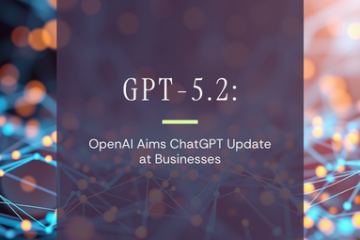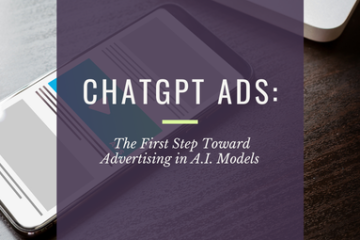
The Five Key Takeaways from This Article
- OpenAI is expanding ChatGPT’s memory so that you can train it for long-term purposes, such as writing a themed weekly blog.
- The chatbot’s “recall” goes between different conversations, so you can have multiple conversation threads that make use of the same information.
- Users have the option to opt out of the memory.
- As always, business owners should be wary of sharing any sensitive data with ChatGPT, especially now given the improved memory bank.
- ChatGPT has always possessed a memory feature, but it usually confined it to one conversational thread.
Memoria, Memoria
One of the most underused features of ChatGPT has been its memory.
OpenAI has been calling attention to this feature recently, in the form of announcing that ChatGPT will now have a much more broad recall capacity.
So, if you use a certain account for ChatGPT, you have the choice to opt into a memory feature that enables ChatGPT to draw on information from multiple, previous conversations instead of the traditional short-term memory of one conversational thread.
This capability enables business owners and their marketing partners to more easily create content based on previously provided and/or generated information.
So, if you gave ChatGPT in a previous conversation a spreadsheet of all of the shoes that your company sells, in a new conversation it will be able to draw on that list in writing copy about certain shoes.
What this does is save time in creating content. Instead of making ChatGPT relearn information that is crucial to your content strategy, it can easily draw from its memory to pick up right where you left off.
In the end, ChatGPT’s improved memory allows for business owners to put out stronger automated marketing content that is more steeped in the language and facts of the business.
This is all due to the power of callbacks, which at one time were limited to a single conversational thread for ChatGPT.
The Power of Callbacks in ChatGPT’s Improved Memory
Many users sort of just assume that each new prompt with ChatGPT cleans the slate, so to speak.
But it has long been the case that even in one thread of conversation with ChatGPT, a user would be able to refer to previous information given in the thread.
Many long-time users realize this, and have been using the short-term memory aspect of the conversational threads to have ChatGPT continually rewrite and rework a piece of content until it is in a satisfactory form.
For instance, suppose you and your family are gathered around the living room’s desktop computer to generate an email to send to your family lawyer to wish her a happy Saint Patrick’s Day.
The first result is a bawdy limerick that you would not wish to send to your family lawyer, so your family requests a rewrite.
The rewrite cleans up the rewrite, but one family member claims that there are simply far too many dactyls, and that the final product should not have such an obvious overreliance on dactyls, for your family lawyer has high aesthetic standards and, as such, values variance in any sample of prosody’s metrical footage.
And so, through a prolonged back-and-forth between family and ChatGPT, you all at last arrive at a version of the limerick that all in attendance consider satisfiable enough to send along to the family lawyer.
Be Careful What You Share
Yes, it is true that we are pretty much constantly oversharing on the Internet. Just go on any major platform and you will see as much.
Even if you don’t browse the digital public town halls, you probably often provide information on online forms that you wouldn’t typically give to a stranger in person.
Examples include your credit card number, the make and model of your first car (if creating or answering one of those security questions that function as like backup passwords), names of your children and pets, your social security number–commonly abbreviated as “SSN” in the asterisked required fields of the fill-out forms–, address including ZIP code, and the like.
And those are just your own personal details. What of your business’ details? You customers’? How about your employees’? And let us not forget those ever-valuable trade secrets that are helping you retain your foothold in an ever-competitive market.
The moral of this paragraph is that you should refrain from putting into ChatGPT’s improved memory bank anything about or related to your business that you would not want to be exposed in a hack-leak incident.
And, it must be said, OpenAI has indeed been recording conversations for the sake of continually training its conversational computing platform. Though the company claims to scrub certain sensitive information before training, it’s better to err on the side of caution in this case.





